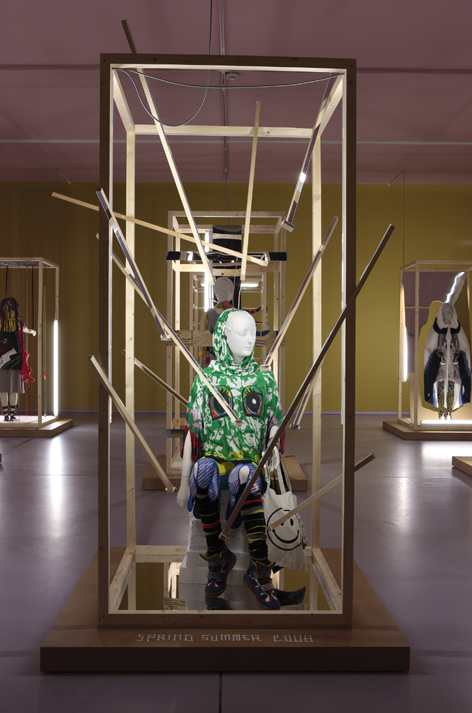Bernhard Willhelm and Jutta Kraus at the Groninger Museum
/Bernhard Willhelm and Jutta Kraus, Autumn/Winter 2009/2010, (Perhaps a witty comment on the housing crisis?), Photo: Shoji Fuji
A retrospective of Bernhard Willhelm and his business and creative partner Jutta Kraus just opened at the Groninger Museum. Curated by Sue-an van der Zijpp and Mark Wilson, known for having curated the first retrospective of Hussein Chalayan, the exhibition is an exhausting chronicle of the idiosyncratic fashion that Willhelm and Kraus produced over the last 10 years. The exhibition design, which Willhelm and Kraus developed in collaboration with the Groninger Museum, started with the use of mannequins based on classical statuary—an interesting choice for the decidedly non-classical silhouette embodied in their designs.
The exhibition is accompanied by a catalogue, published by NAi Publishers. It is abundantly illustrated with photos of every collections that Willhelm and Kraus have thus far produced. The catalogue also includes an essay by the German-based journalist Ingeborg Harms on their backgrounds, an interview with the designers by Sue-an Van der Zijpp, as well as an essay I wrote on their work’s relation to the grotesque and carnival themes.
The book is available through NAi Publishers, while the exhibition remains open through April 11, 2010.
Francesca Granata
Click below for installation shots of the exhibition Bernhard Willhelm & Jutta Kraus Womens Collection 2007/2008 Photo: Marten de Leeuw
Bernhard Willhelm & Jutta Kraus Mens Fall/Winter 2008/2009 Photo: Marten de Leeuw
Bernhard Willhelm & Jutta Kraus Womens Spring/Summer 2008 Photo: Marten de Leeuw
All Photos Courtesy of the Groninger Museum


















